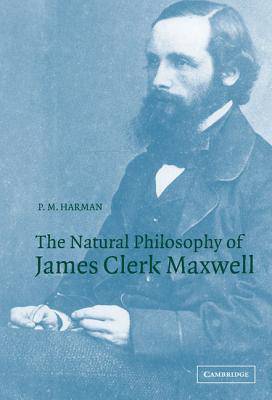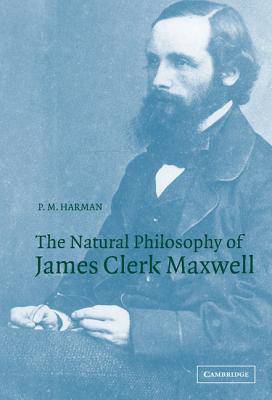
Door een staking bij bpost kan je online bestelling op dit moment iets langer onderweg zijn dan voorzien. Dringend iets nodig? Onze winkels ontvangen jou met open armen!
- Afhalen na 1 uur in een winkel met voorraad
- Gratis thuislevering in België vanaf € 30
- Ruim aanbod met 7 miljoen producten
Door een staking bij bpost kan je online bestelling op dit moment iets langer onderweg zijn dan voorzien. Dringend iets nodig? Onze winkels ontvangen jou met open armen!
- Afhalen na 1 uur in een winkel met voorraad
- Gratis thuislevering in België vanaf € 30
- Ruim aanbod met 7 miljoen producten
Zoeken
Omschrijving
This book provides an introductory yet comprehensive account of James Clerk Maxwell's (1831-79) physics and world view. The argument is structured by a focus on the fundamental themes that shaped Maxwell's science: analogy and geometry, models and mechanical explanation, statistical representation and the limitations of dynamical reasoning, and the relation between physical theory and its mathematical description. This approach, which considers his physics as a whole, bridges the disjunction between Maxwell's greatest contributions: the concept of the electromagnetic field and the kinetic theory of gases. Maxwell's work and ideas are viewed historically in terms of his indebtedness to scientific and cultural traditions, of Edinburgh experimental physics, and of Cambridge mathematics and philosophy of science, which nurtured his career. Peter M. Harman is Professor of the History of Science at Lancaster University. He has published primarily on the history of physics and natural philosophy in the 18th and 19th centuries, the period from Newton to Maxwell. His previous books include Energy, Force, and Matter (Cambridge, 1982), The Investigation of Difficult Things (Cambridge, 1992), After Newton: Essays on Natural Philosophy (Variorum, 1993), The Scientific Letters and Papers of James Clerk Maxwell, volume 1 (Cambridge, 1990), volume 2 (Cambridge, 1995).
Specificaties
Betrokkenen
- Auteur(s):
- Uitgeverij:
Inhoud
- Aantal bladzijden:
- 248
- Taal:
- Engels
Eigenschappen
- Productcode (EAN):
- 9780521561020
- Verschijningsdatum:
- 28/05/1998
- Uitvoering:
- Hardcover
- Formaat:
- Genaaid
- Afmetingen:
- 160 mm x 236 mm
- Gewicht:
- 498 g

Alleen bij Standaard Boekhandel
+ 400 punten op je klantenkaart van Standaard Boekhandel
Beoordelingen
We publiceren alleen reviews die voldoen aan de voorwaarden voor reviews. Bekijk onze voorwaarden voor reviews.











